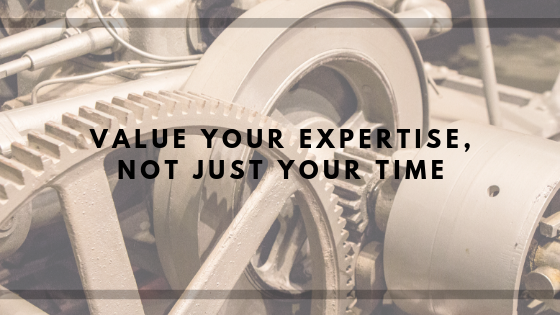Over the years, I realised I’ve had a lot of ‘adjustment’ or ‘pivot’ points for a range of different reasons… If you know me, or have read some of my About Me, you’ll see that I’ve lived in 4 cities across 3 states, and been to 2 primary schools, 2 high schools and 2 unis. I haven’t counted recently, however I remember even going into my professional career, I had moved houses an average of every 24 months! So yeah, I’ve had a fair few points in time where I’ve had to ‘adjust’… All that being said, the most recent significant adjustment I’ve had to make is transitioning out of full time ‘PAYG’ employment, to self employment. As you can probably imagine, there are a myriad of reasons this has been an adjustment, with one of the most significant being changing the mindset of being paid an hourly rate.
THE OLD 9-5
I still find it funny that we refer to full time employment as the ‘9-5’… Is that even still a thing? Pretty sure they’re ‘8-6’… On a good day! Like most I’m sure, when I worked the office jobs, whether I had a lot on, or there was a lull between deliverables, there always seemed to be the expectation that you had to be at your desk for 40 hours per week. “But why” you ask? Well because that’s how many hours a week your contract says will earn you your annual salary. This isn’t a dig on corporate life, just an observation of how we’re conditioned to view our ‘value’. It was the exact same thing when I worked in hospitality throughout uni, in fact, even more so, because I was literally paid an hourly rate… None of this ‘salary’ stuff… There could not have been a more direct correlation to time on the floor and money in the bank.
HOW ELSE ARE YOU SUPPOSED TO GET PAID?
Like most people looking for answers in the late 90’s, I read Robert Kiyosaki’s books, starting with Rich Dad Poor Dad and The Cashflow Quadrant. There’s a lot of great messages in these books, but the one that opened my eyes pretty quick were the two sides of the cashflow quadrants. On the Left Hand Side, you can be an ‘Employee’ or ‘Self-Employed’ where you trade your time for money… On the Right Hand Side, you can be a ‘Business Owner’ or ‘Investor’ where you make money whether you turn up, or not. As a ‘Business Owner’ or ‘Investor’ – yes, you can make money even when you don’t turn up. Along with Robert Kiyosaki, Warren Buffet also thinks it’s a good idea – famously quoting ‘if you don’t figure out how to make money while you sleep, you will work until you die’. I wanted to share all this as it helps make the shift from getting paid based on the time you put in, to getting paid for what you know. If you’re an investor, the reason you can make money whether you turn up or not may be because you’ve analysed the markets, you’ve figured out your risk to reward ratio, you’ve put a cash management plan in place and you’ve developed your investment strategy. If you’re a business owner, the reason you can make money whether you turn up or not, is probably because you’ve put systems in place, you’ve built the right leadership teams and delivery teams, you’ve come up with a winning strategy.
GET PAID FOR YOUR EXPERTISE
 I know what you’re thinking, how are we almost at the end of an article without an analogy or story? Well here it is… Similar to the Gold Rush story, there’s another story I still remember and share all the time. In the same way, it keeps me anchored in what I do and also seems to make people go ‘ahhh, interesting’… The story is about an engineer that’s flown out to a rig because it stops cold. Every minute the rig isn’t working, thousands upon thousands of dollars are being lost. The engineer rides in a helicopter, lands on the rig, asks the crew what they know and what they’ve tried, then gets led down to the engine room. The engineer looks around, hits a few things and after 10 minutes, all the lights come on, things start turning and they’re back in production. Everyone comes back up to the deck, and the engineer hands the invoice over for $300k. Understandably, the captain is up in arms and can’t believe how the engineer has the audacity to charge so much! CAPTAIN: “You were only down there for 10 minutes and hit a few things – where do you get off at charging us $300k!?!” ENGINEER: “Yes, but I knew where to hit”
I know what you’re thinking, how are we almost at the end of an article without an analogy or story? Well here it is… Similar to the Gold Rush story, there’s another story I still remember and share all the time. In the same way, it keeps me anchored in what I do and also seems to make people go ‘ahhh, interesting’… The story is about an engineer that’s flown out to a rig because it stops cold. Every minute the rig isn’t working, thousands upon thousands of dollars are being lost. The engineer rides in a helicopter, lands on the rig, asks the crew what they know and what they’ve tried, then gets led down to the engine room. The engineer looks around, hits a few things and after 10 minutes, all the lights come on, things start turning and they’re back in production. Everyone comes back up to the deck, and the engineer hands the invoice over for $300k. Understandably, the captain is up in arms and can’t believe how the engineer has the audacity to charge so much! CAPTAIN: “You were only down there for 10 minutes and hit a few things – where do you get off at charging us $300k!?!” ENGINEER: “Yes, but I knew where to hit”
SO WHAT?
Whether you’re in business, or have helped a friend out with something – have you ever been in a situation where they’re so incredibly grateful for what you did, but it was really simple for you? It could have been replacing a door handle, training a dog to sit, updating software, or changing the oil in a car. All of these may be simple to you, but people make a living out of it, and some even set up business chains across the country that do these things! I suspect that one of the main reasons it comes easy to you now, is because you previously grew up doing it, or you spent time learning how to do it. Whilst it only takes you 10 minutes now, you’ve probably invested weeks, months, or years into that skill. This time and expertise has to be valued. If someone hires you to do something you’re specialised in, and you find it easy, it doesn’t mean it’s less valuable. They’re hiring you for your expertise, and because you’re able to do it quickly! It’s because of this, that we need to shift from basing our value on time, to basing it on our expertise and the level of problem we’re solving. Regardless of the time it takes you to do it – does your expertise enable you to solve a $30 problem for that business, or are you solving a $300k problem for them?

Calem Koek is a web designer and digital marketer with a unique background in corporate as well as online and offline small business. His passion is in combining creativity, digital and people to create compelling outcomes for people and business. Calem’s ongoing focus is on building personal and professional experiences and packaging them up in a way to coach others going through the corporate and business journey he has.